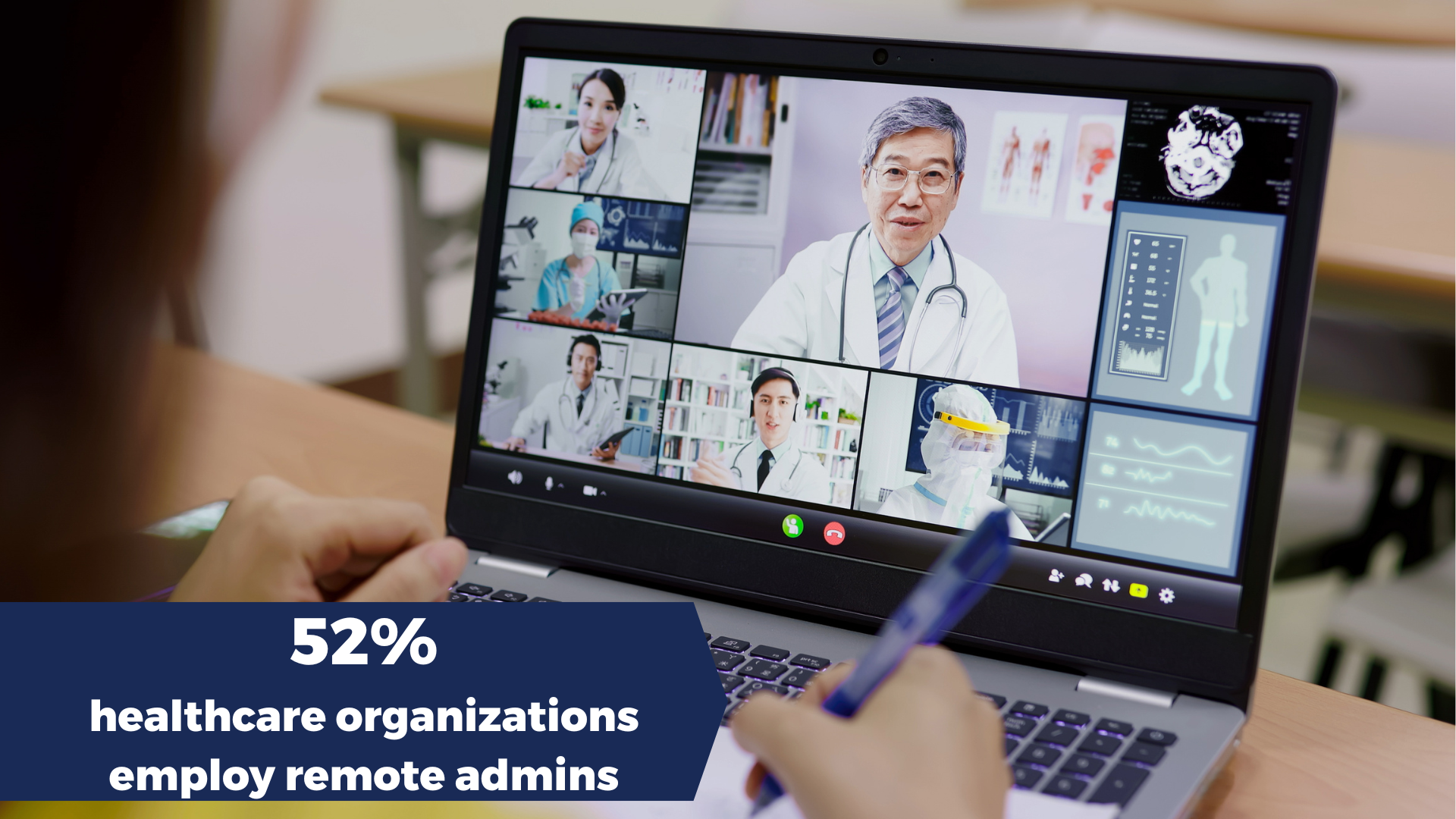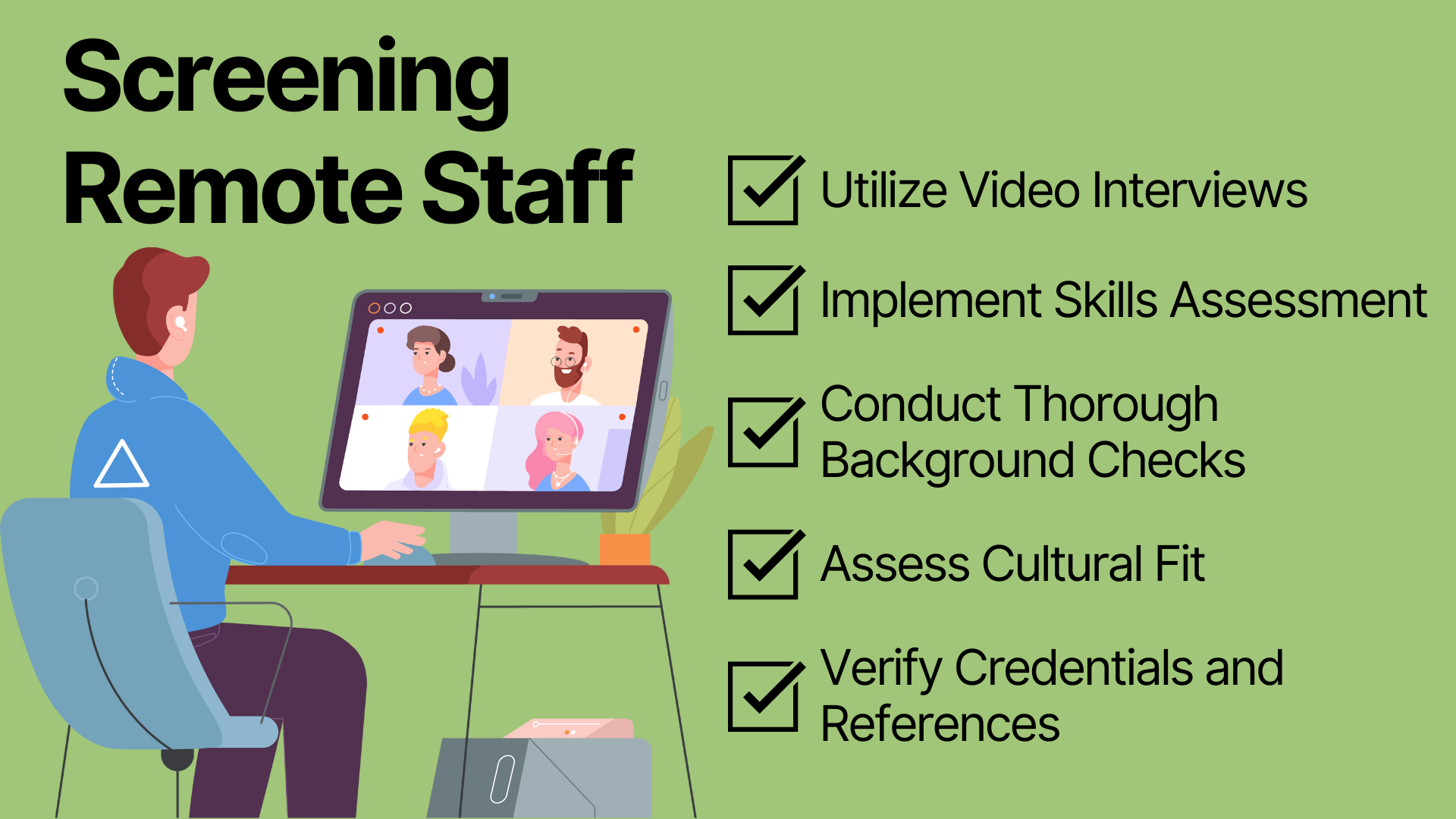The Growing Trend of Remote Administrative Work in Healthcare
The healthcare industry has seen a notable increase in remote labor, according to recent studies. A recent survey by the Medical Group Management Association found that 52% of medical practices now employ remote administrative staff, a 37% increase from 2021. This trend underscores the importance of refining processes for screening remote admin staff to maintain efficiency and compliance in healthcare operations.

Key Considerations in Screening Remote Admin Staff
When screening remote admin staff for healthcare positions, organizations must consider several critical factors:
1. Technical Proficiency
Remote work demands a high level of comfort with technology. When screening remote admin staff, assess candidates' knowledge of telehealth platforms, electronic health records (EHR) systems, and remote collaboration tools.
2. Communication Skills
Clear communication is essential for productive remote work. Evaluations of written and verbal communication skills, as well as the ability to convey complex medical information accurately, should be included in the screening process.
3. Time Management and Self-Motivation
Taking initiative is an important characteristic of efficient remote workers. Provide assessments that measure candidates' ability to manage time effectively and work independently.
4. HIPAA Compliance Knowledge
Healthcare administrative staff must understand and adhere to privacy regulations. Screening remote admin staff should include thorough evaluations of HIPAA knowledge and commitment to maintaining patient confidentiality.
Best Practices for Screening Remote Admin Staff
To ensure the selection of top-tier remote administrative talent, consider implementing these best practices:
1. Utilize Video Interviews
When screening remote admin staff, leverage video conferencing tools to assess candidates' comfort with technology and observe non-verbal cues.
2. Implement Skills Assessment
Include practical tests that simulate real-world scenarios. For example, you might ask candidates to schedule appointments using your company's software or write a response to a patient inquiry.
3. Conduct Thorough Background Checks
Comprehensive background checks are crucial when screening remote admin staff, due to the sensitive nature of healthcare data.
4. Assess Cultural Fit
Consider how well candidates align with your organization's values and work culture. This is particularly important for remote workers who may have limited in-person interactions with coworkers.
5. Verify Credentials and References
When screening remote admin staff for healthcare positions, thorough verification of credentials and references is crucial. This step is particularly important given the sensitive nature of healthcare data and the increased autonomy that comes with remote work. Be sure to check the validity of any professional certifications relevant to healthcare administration.

Addressing Potential Challenges
While remote administrative work offers numerous benefits, it also presents unique challenges. When screening remote admin staff, be mindful of these potential issues:
1. Data Security
Ensure candidates understand and can comply with your organization's data security policies. According to the HIPAA Journal, 20% of remote healthcare organizations reported data breaches in 2020, citing remote work as the risk factor.
2. Work-Life Balance
Assess candidates' ability to maintain boundaries between work and personal life. The American Psychological Association reports that remote healthcare workers are more likely to experience negative impacts on their mental health due to blurred work-life boundaries.
3. Team Cohesion
Look for candidates who demonstrate strong teamwork skills and the ability to build relationships virtually when screening remote admin staff.
Conclusion
As the healthcare industry continues to evolve, the importance of effectively screening remote admin staff cannot be overstated. By implementing these best practices and leveraging cutting-edge technologies, healthcare organizations can build a strong, effective, and compliant remote administrative workforce. With careful consideration and thorough screening processes, healthcare organizations can fully benefit from remote work while maintaining the quality and integrity of their operations.
Employee Verify Onboard Connect’s screening solutions help healthcare organizations verify remote admin staff qualifications and maintain HIPAA and data security compliance through identity checks and workspace assessments. This thorough approach enhances productivity and safeguards sensitive patient information in remote work environments.